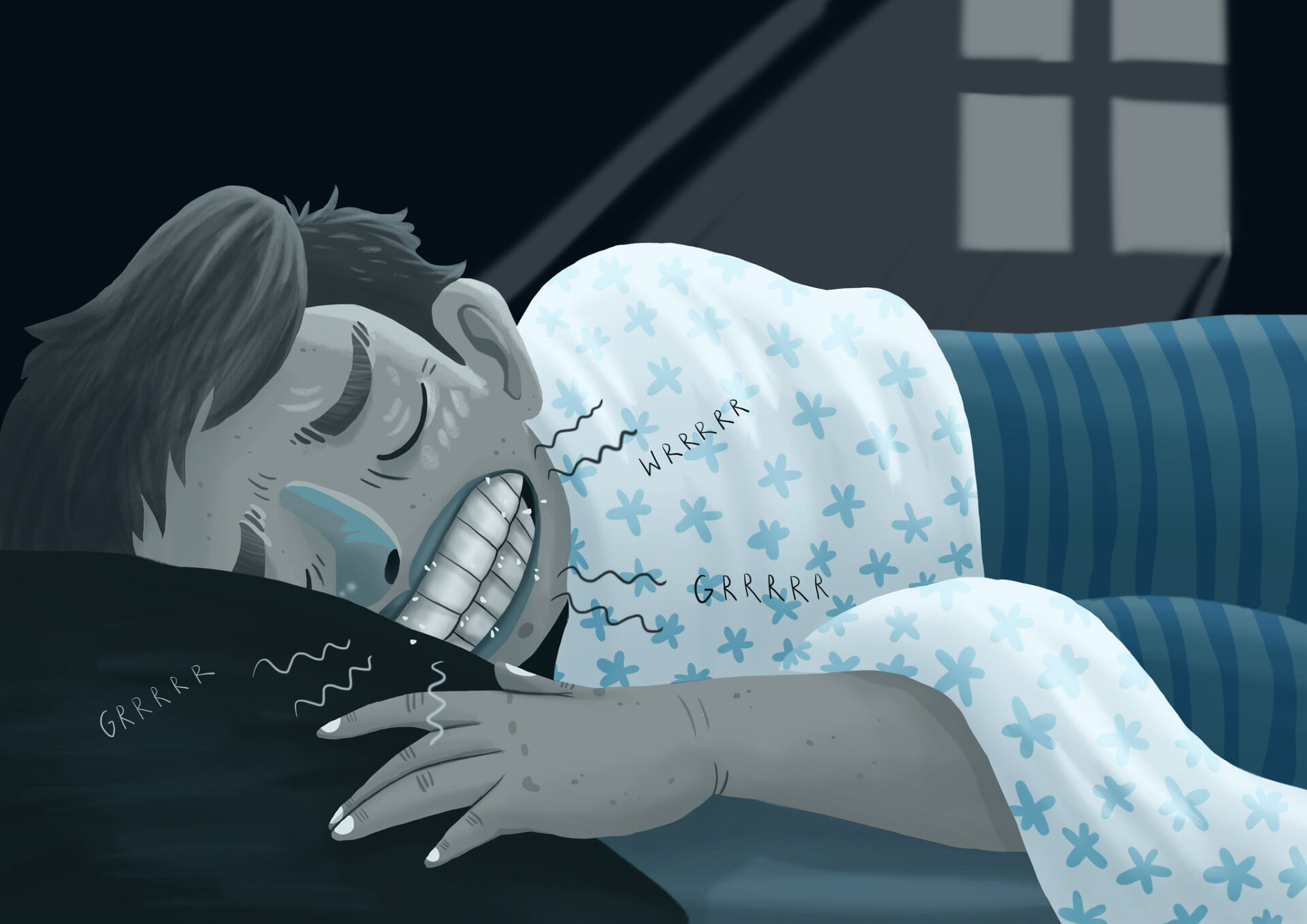
The temporomandibular joint (TMJ) connects the jawbone to the skull. TMJ disorder, or TMD, can cause pain in the jaw joint since the joints are damaged or not functioning correctly. There are a variety of reasons TMD occurs, including but not limited to:
- Arthritis
- Jaw Injury
- Stress or Anxiety
- Teeth Grinding
- Jaw Clenching
Are TMJ Issues & Teeth Grinding Connected?
Waking up with sore facial muscles or a headache can make eating, brushing your teeth, and other daily activities uncomfortable! If you frequently wake up with facial soreness and jaw pain, you might be grinding your teeth at night while you sleep.
Teeth grinding, also known as bruxism, can be associated with TMJ disorder. Bruxism can sometimes be caused by a misaligned bite, which can cause uneven pressure on the jaw joints and spasms in the jaw muscles. Symptoms of teeth grinding include:
- Frequent Headaches
- Jaw Pain
- Tooth Pain
- Earaches
- Worn or Broken Teeth
- Teeth Sensitivity
Teeth Grinding Treatment Options
If you grind your teeth at night, you’ll be relieved to know that you have treatment options. Generally, treatment for bruxism is non-invasive.
While we recommend taking steps to improve your sleep habits and reduce your stress, we also may recommend a custom nightguard. A mouthguard for sleep will create a barrier between the teeth to prevent grinding and clenching, and thus reduce TMJ irritation and pain.
Although mouthguards are typically a great solution to help alleviate teeth grinding habits, we may explore other options depending on your situation. Our goal will be to resolve your issues as efficiently as possible.
TMD Therapy in Farmington, AR
At Farmington Dental & Orthodontics, we want our patients to have long-lasting healthy smiles. If you wake up with signs of teeth grinding or TMJ dysfunction, contact us to schedule an appointment with our team!
Image from Authority Dental under CC 2.0
